The Hot Chicken ProjectWords + Recipes | Obsession + Salvation
The Hot Chicken Project is more than the sum of its parts. Yes, it’s a cookbook, but it’s also a narrative, a photographic celebration and most importantly, it’s Aaron Turner’s love letter to his obsession. This book is about immersing yourself into the world of hot chicken.
For acclaimed Australian chef Aaron Turner, hot chicken isn’t just food – it’s salvation in crispy, fried and devilishly spicy form. In The Hot Chicken Project, he travels back to Nashville, the place of its birth, to pay his respects to the makers, to chart the love and obsession that has shaped his world, and to make sure that what he does back home is doing it justice. Part cookbook, part pilgrimage, The Hot Chicken Project is both an epic love letter to the fiery bird and a celebration of a way of life that is in danger of vanishing forever.
The Hot Chicken Project is part recipe book (40 recipes covering the best mains, sandwiches, sides, salads and sauces), part narrative, part pictorial celebration of the history and power hot chicken holds over the city of Nashville – and now beyond (including Melbourne!).
It frames the stories of the people and families and communities who have cooked and eaten and appropriated it in Nashville over several generations. It offers a loud, opinionated take-no-prisoners perspective on food culture in the US (and beyond) today, as well as being an incomparable how-to manual for the VERY best hot chicken and accompaniments – wherever you are.
Aaron Turner
Geelong is a scenic holiday town on the southern coast of Australia. So if one were going to open a southern style hot chicken restaurant it might not be a potential location. However for noted Australian chef Aaron Turner it was. Why? The answer is a love story of discovery and rediscovery. Aaron Turner explained it to us as we talked about his new book the aply named The Hot Chicken Project (just like the restaurant).
~~~~~~~
Booksaboutfood.com(BAF): What brought you to Nashville originally in 2013?
Aaron Turner: I was in restaurants. I owned a restaurant, as I do. And at the time, I separated from my wife, and we sort of went, both went, separate ways, and I’ve traveled all my life. I love it. It’s a big part of me, so I just packed the bags, and I thought I’d go live in New York for a little while. And I got to Nashville, and I stayed there. It was one of those cities where I couldn’t leave … because I have a big love of music and art, and that city just seemed to be bubbling with it. Yeah, I set up camp in Nashville.
BAF: So, it wasn’t a destination as such, it was just you had found your way there?
Aaron Turner: No, I had actually a friend of mine was living there so I just stopped by to say hello, as we do, and slept on his couch for a few weeks, and then decided all right, I’m going to stay, and got myself an apartment- I was lucky enough to have a visa, which means I could stay, so I did stay.
BAF: Hot chicken. Did you know anything about it when you went there, or did you discover once you were there?
Aaron Turner: I had read about it in passing.I went, “Well, that sounds interesting.” But I had never heard about it before. Obviously, I had never eaten it before, and it was only probably a week into my stay in Nashville that I went to Hattie B’s and had my first hot chicken experience, and whoa.
For me it was one of those light bulb moments, where I’m like, “What is this?” And as a cook, you’re very intrigued over possibilities of what this is, so sort of went down the rabbit hole from there.
BAF: Any idea what it was that caused the mind to explode or what was it that drew you to it?
Aaron Turner: It was a pretty ordinary mental space because of finishing up our restaurant, separating from my wife, moving to the country, and sort of losing that connection with cooking and not wanting to think much about food, because I had thought it’d brought me some level of pain in the recent years.
And I’ve always loved fried chicken, like it’s my go-to comfort meal, even though in Australia we have pretty bad fried chicken. The top if it’s from KFC, that really says something. So, I think it was just that re-ignition of something that the curiosity in food that’s always in me.
One of my favorite comfort things that you’d just been leveled up with, I think the spices, which are totally addictive anyways, so I think it was all those components, that just in that moment, there was a really sort of wake up, I guess.
BAF: Well, I know you had documented some of your personal issues in a previous book about where you were at that point in your life, so it almost sounds like you have to lose yourself to find yourself.
Aaron Turner: Yeah.
BAF: You were almost considering just leaving the food world altogether.
Aaron Turner: I was. I had lofty ambitions of playing guitar in Nashville. Yeah, well I just, with my personal coming back, after a few years on the ropes. I thought this isn’t something that … This is something that’s food world glosses over and uses in bits and pieces.
These are the same people that I’ve written about, the mental health of cooks and experiences and whatnot, and I thought this is a good opportunity for me to really sort of expose myself in a way that I thought nobody had, because I knew that it would resonate. And the two stories, really, are intertwined, because my reemergence tapped into fine dining, which I do, was through hot chicken.
BAF: That’s what I find so interesting, because you did have a very high-end restaurant…
Aaron Turner: I had a hot chicken place in Melbourne, the first one, called Bell’s Hot Chicken, and I sold out of that to come back to Geelong, where my original restaurant was out towards Port Alison, probably 20 minutes, half an hour outside of Geelong on a farm, so it was a working farm. And that was a fine dining restaurant out there.
It was incredibly successful and launched my career, so I always had an affinity to this area. I’m not from this area, but there’s a lot of really good projects and producers, and they’re just really good people, so I wanted to connect.
If I was going to do that level of restaurant again, I wanted to connect with those people, but more in a comforting kind of way, so I sold out of Melbourne, came to Geelong and as restaurants do, that one got delayed a little bit, so in the meantime, I opened the Hot Chicken Project, which is … It’s been great.
BAF: Sounds like you went back to Nashville specifically for hot chicken?
Aaron Turner: I did, so I’ve had this love affair, obviously, which is why I was living there. I ate far too much of it, because the curiosity side keeps everybody on a need to know … I needed to know how it was done. I wanted to know the history and I wanted to know everything about it.
And then if somebody is sort of taking this food and opened it on the other side of the world, I felt that I still wanted and needed to be connected and try and tell a sympathetic true story about this love affair with hot chicken.
And some of the people and cooks that don’t necessarily get mentioned in all of these media, because as we know hot chicken in America and in Australia really blew up. It was the hottest thing there for a while, but I just felt that some of the more important things got glossed over. So I packed up with my friend, who’s a photographer, and we went back and went about it.
BAF: How long did this particular travel and research project go on for? Was it one trip?
Aaron Turner: No, it was several over a year, so we went in two summers about the same time, about I think it was July/August, end of July, start of August a year apart, so we went on the initial trip, and when we come back and I started writing and putting notes together, and found a way through the book.
Julian, who’s the photographer in both my books, he just felt the need to go back and I guess connect again through the lens, so we did. We packed off and headed off for another couple of weeks.
BAF: Sounds rough…
Aaron Turner: Yes, horrible!
BAF: We’ve talked alot about Nashville but where exactly did your travels take you?
Aaron Turner: Well, we went from Louisville in Kentucky, and down to Nashville, so the whole idea of the book was this almost spiritualism is very much the wrong word, and so is whimsical, but somewhere in between, this story…
You know when you eat hot spice and you sort of get elevated to this aura, it was that. And I had this idea that what would happen if I was having a conversation with all of these people that were influential in fried and hot chicken becoming hot chicken, and they’re all dead. They’re all passed away. So, I started writing the book as if I was talking to these three ghosts, really. And just trying to get across to them my love for what they’ve created and what they’ve done and it’s almost written in a sense of awe, and yeah. So, that was the idea of the book, so Julian really wanted to capture some of the faces that don’t usually get seen in publication.
BAF: How did you find these places? Were they well-known or places you stumbled upon or heard about through word of mouth?
Aaron Turner: Well a lot of them are now pretty much institutions in Nashville, because Nashville ripe with its tourism’s been quite big. And then some of them it was just the word of month. I think there were ones that I had never heard of when I lived there. I had never been, called Moore’s. And we went and visited him, and we found it’s just this one guy doing everything, taking orders, cooking. He’s this really cool sort of guy that’s just doing it because it’s an income, and he loves it.He’s just down in a little strip mall out in … I can’t remember now.
So there was a mix of all right let’s go see what the big boys are doing, like Hattie B’s, those sort of media darlings, and then work backwards into the neighborhoods, and just talk to the cooks and the people.
BAF: Any big discoveries that really blew you way or really surprised you?
Aaron Turner: I had eaten a lot of it and often, but one of the big things for me was the consistency of the products that some of these run down little shacks are doing.
As a cook, that’s what we strive to do in everything that we do is consistency day in and day out. I’d been there probably over the last six, seven years, and every time I’m like, “God, that’s just the same. That is spot on.” That consistency is something that’s very admirable. I find it quite amazing.
BAF: Well, I guess what I’m curious about now is you’ve got this Australian chef and photographer show up, what kind of reception did you guys get walking into these little, remote hot chicken places? Were the doors open for you?
Aaron Turner: They were really beautiful people, and Julian, who I travel with, he’s a very kind, personable human, so yeah, he’s very disarming. He’s quite good looking, so a lot of the girls just swoon, right? That’s my in. But they were very open, very sharing, very caring. The only thing that was a common thread with it is we were never allowed to shoot the kitchen, so … and that was fine. We shot some of the cooks when they came out.
We’re just very respectful in that way. We just didn’t turn up. He shoots very well and very quickly, and on very, very limited gear. He’s just got his camera, no lights, nothing, so he’s not very intrusive. We just tried every time to be polite and respectful, because I’m honestly in awe of these people that do these things, so yeah, we found it quite easy. And Julian ended up in most of the kitchens, as he does.
So we just went about it. Anybody had a problem, we’re like, “Sure.” We paid and left, and no one … everyone was really good, really nice.
BAF: I just didn’t know if there were secrets, people were hesitant to speak to a chef about their secrets, or if there were family secrets or regional or things they didn’t want you to know?
Aaron Turner: Yeah, a lot of them are, but they’re happy to talk about it. They’re not going to give you their recipe. I’m not going to give anybody my recipe either, … and that’s the other thing with fried chicken and the mystique around everybody’s got a secret recipe, because they’re all essentially the same. I love that. I love that secrecy of it.
BAF: Everybody’s got a recipe, and there’s not really that many different ingredients put in there, but it is amazing the differences…
Aaron Turner: Exactly, yeah, and that to me is very intriguing as well.
BAF: I noticed you had a couple of recipes for skillet fried chicken. Somebody had told me a while ago that that’s something that fewer places are doing, because it’s much more labor intensive to do it by the skillet.
Aaron Turner: Yeah, it is. I talk about that in there, that the time and the attention that a skillet fry takes, and there’s a shack out in Charleston that I went to, and you can watch her just do this skillet fried on a domestic electric, four-burner stove. And the results are amazing, I mean she’s an older black woman has been obviously doing it for a very long time, but the result is … again, you’re just like, “This is fried chicken, but this is another level of fried chicken.”
But it does, it takes attention. It takes time. You’ve got to know your skillet and know your fat, know your temperatures very well, so it’s a real skill, so I can see, especially in today, the way the food moves, in labor, it wouldn’t be worth it, especially in Australia.
BAF: I see a lot of fires started because of that.
Aaron Turner: Yeah, I bet there has been, yeah. But I cook it that way at home when I cook it from home, if I do fried chicken out of a skillet, and I have my process, but it’s a real process, but it’s enjoyable.
BAF: Is this an art or craft that is going strong or is it slowly fading away, whereas the appreciation for it is still strong?
Aaron Turner: The last time I was in LA for Christmas with my girlfriend’s family, and there was probably four or five hot chicken places in the downtown that have popped up in the last little bit.
There’s a place out there in Chinatown called Hal and Ray’s, that has like two, three-hour lines every day. So, I think it’s definitely … It’s something that resonates for people on many different levels from comfort foods to those who like to test their spice tolerances to what is the mystique and the mystery around fried chicken. I know I think it’s still got a lot of length, in that It’ll be the bigger brands that roll out. Hattie B’s is that kind I guess for the first that Nashville sort of gentrify it.
They opened up in the Gulch, no, not the Gulch, sorry the west side, west end, and that was sort of the first people to take it into a ‘safe’ community, and open it up to a whole different kettle of fish, and that exploded. They’re in Atlanta now. They’re in Memphis. They’re all over the place. They’ve got nine, ten stores. They’ve got four in Nashville alone, so I think with hot chicken they’ve sort of wanted to popularize it and sort of turn it into that chain environment rather than a standalone shack.
They were the team that created Bolton and Princess, they’ve been doing it for the last 40 years, and they’ve just moved around as the city has changed locations, so always a single shop, but a lot of tourism into Nashville is about one, the music and Broadway and the party town, but the other part is this hot chicken, which I saw explode from pretty much just a local thing.
A lot of the locals were still like, “Ah, I never heard of it. What’s that?” I’m like, “Oh, my god. It’s the most amazing thing you’ve ever had. Let’s go.” So, yeah, it’s had its moment. I just think it’s started really.
BAF: How’s it been accepted out in Geelong or in Australia?
Aaron Turner: When I came back, opened in Melbourne, we had lines and media and same sort of thing, and then it was sort of going in a direction that I didn’t like with some of the partners there, because I see Instagram as a necessary evil, not something to build the standalone product though, probably some detriment a lot of the times.
But it was sort of going down that PR model of things in a high-level roll-out, and it’s just not me, so I decided to sell out, and I found a little old dive bar in Geelong and opened just my own version of what I loved in Nashville, which is the neighborhood shack.
It’s been really successful. I think we’re five years old now, and it’s busier than ever, but we’re still true to what we wanted to do, and just make it that community environment where it’s more ensconced in the community rather than on a tile on a screen.
BAF: Have you got two locations?
Aaron Turner: Yeah, we did. We have two. We’ve just had a seasonal one down in Anglesea , which is the beachside town. We only had that for two years, and that’s finished up. Just in time it turned out with everything that’s been going on.
BAF: Were you guys able to keep running through all this craziness?
Aaron Turner: Luckily, we have a take-away model in place and delivery. It does really well for us, so of course, turnover’s way down, but we’ll manage this one through until things come good again with that model rather than in person.
We’re in no hurry to open back up in person until we’re seeing … because we just started opening today in Australia or Victoria. We’re allowed to have 20 people in the store. It’s just not enough with the cost of business that it takes to run something in Australia, because their labor is very, very high. We’re just going to wait it out until things settle down a little bit more and we can sort of see the path forward a little bit better.
BAF: Are you still traveling to The South researching this subject?
Aaron Turner: I was supposed to be there now-ish, but that didn’t work out, so we’ll be back there. I take every opportunity I can. I like to see my partner’s … family’s over there. They’re in Chicago and Portland, so she goes there and I go south!
BAF: I should ask, what’s next for you?
Aaron Turner: What’s next? Well, just at the start of all of this, we had taken another space on the same street as the chicken shop to open a taco stand, so a lot of that was already sort of paid for and half way down the tracks, so we sort of kept going with that, so that kept me busy with renovations and planning.
So that’ll open next week, but we’re bringing a take-away model as well, and that’s just pretty much also the obsession on street food really in Mexico and LA, a little taco truck, but it’s stationary. So, it’s a weird thing to be opening a new spot during all of this, but all the stars aligned. I’m trying to take all the positives out of it rather than dwelling on things that are out of our control, so yeah, it’s just been a surreal sort of experience where you’re doing something that you really shouldn’t be doing.
And I’ve been writing for a little independent publisher, that two guys who worked on my other book, the editor and designer, have started in the midst of all of this, so we just released this little short story. (Aaron holds a copy up to the camera.)
BAF: Tacos y Licor, did I pronounce it-…
Aaron Turner: Yeah, that’s the name of it Tacos y Licor, yeah, so that’s the name of the new restaurant, but this is just a little short story that I’ve written, and part two is in the works now, so that’s been good.
BAF: What’s the premise?
Aaron Turner: My editor likes to call it frontier fiction, but it’s a story with a vein of truth. It’s my first trip around the world, and my first stop was in Houston, so I was chasing this girl that I had dated a few years earlier in high school when she was out on exchange.
And she had this boyfriend, this big, Texan cowboy boyfriend at the time. He was terrifying. I’m 21 at the time, skinny, never been anywhere in my life, landed in Houston by myself, and she’s like, “Let’s go to Mexico and get out of here,” so we went to Mexico, and that’s the story.
BAF: Okay, that sounds like a good story. You’re here to talk about it, so …
Aaron Turner: Yeah, it was. It was a fun story, but that’s been fun. It’s good to keep that sort of creative juices going.
BAF: Could tacos be the next research project, you find yourself traveling around for tacos?
Aaron Turner: Yeah, I think so, when we’re allowed to travel again. I’ve been to Mexico a couple of times. It’s been a while, but it is something when I can get quite obsessive about things. I’m a very visual sort of tactile person. I need to touch it, see it, smell it, before it all starts to make sense, so yeah, I think as soon as we’re allowed to travel, I’ll see what Julian’s up to, the photographer, and take a bag.
BAF: Off we go, history repeats itself.
Aaron Turner: And see what we find, and that’s kind of our motto when we do these sorts of things, and I’m being very lucky that the publisher let me do it. It’s just like let’s go see what we find, see what we see.
BAF: Actually, maybe I should ask. What do you hope people take away from this book in the sense of do you hope it’s going to spur them on to go out and find these places and to appreciate this custom?
Aaron Turner: Yeah, for me, yeah, it’s like learning to appreciate things I think for what they are. I think a lot of people learn and I guess travel and see things through Instagram and Facebook.
I feel like the sense of adventure is lacking for a lot of people. It’s that whole feeling of geez, these people have better lives than me, but none of that’s true, and you really learn that when you decide to put the phone down and just get in your car and drive or have an experience. And that’s what we sort of hope to achieve with it. The stories that you have, for me, especially a lot of the time, just on spur of the moment events that I tend to go to, like going to Mexico, walking across the border, which I don’t know if you can do that anymore.
It’s just, I guess, that spirit of adventure and being in awe and admiration of the world around us and the people that are in it, doing these incredible things that you might not see on your little screen.
~~~~~~~
Booksaboutfood © 2020


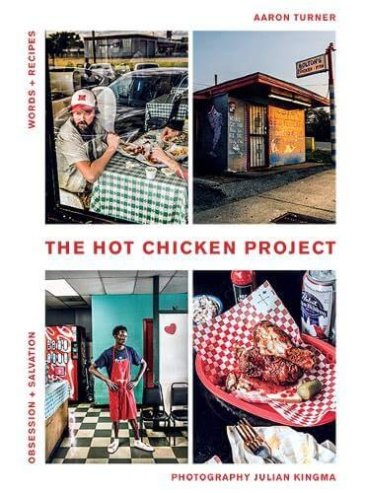


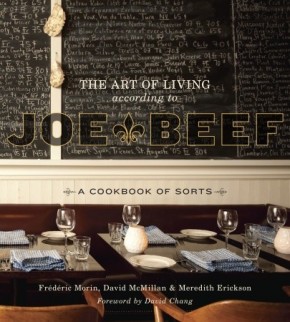

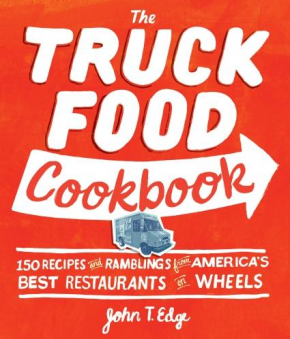
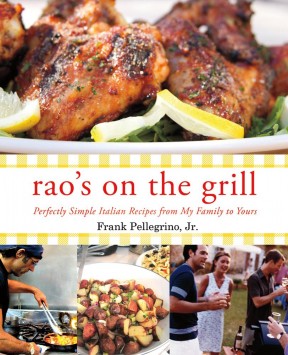
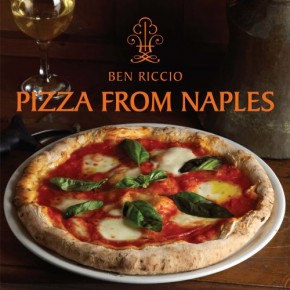
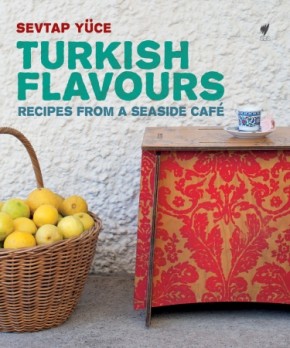
Leave a Reply